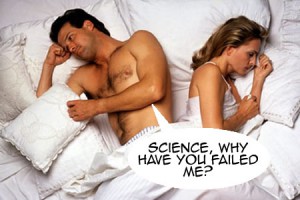The Pleasures of Sexual Science

A few weeks ago I had the honor of addressing the Society for the Scientific Study of Sexuality. Everyone was very nice to me, and my talk was received enthusiastically.
But that wasn’t nearly the best part. For four days I got to listen to the country’s best sexual scientists. It was a festival of fact, tested hypotheses, and replicated data—actual information. Here are just a few examples of what sexual scientists study, how they think, and how society benefits from our work:
Leslie Kantor discussed sex education outcomes, demonstrating that scare tactics do not motivate young people, that accurate information is not dangerous, and that parents can shape their kids’ sexual behavior—if they talk to them.
William Fisher dissected common government strategies for fighting HIV/AIDS—and showed why most common approaches are exactly wrong if we want to minimize the spread of the disease.
Debbie Herbenick talked about why promoting sexual satisfaction is an important part of getting people to make responsible sexual decisions. She also showed that policy-makers underestimate men’s willingness to use condoms.
Mickey Diamond presented his long-term study on how children develop a sense of gender—and what happens when physicians or parents ignore this.
There was plenty of other science to go around, with data on the effects of pornography in real life (quite small), the dynamics of sex offending (very low recidivism), the most effective ways to teach medical students about sex, the impact of social media on sexual decision-making, and so on.
Yes, sexual scientists study sexuality: decision-making, biological function, public policy effects, subjective experience. We study gender (When does it matter? When doesn’t it?); culture (When does religion matter? How do the media affect our feelings about nudity and fertility?); psychological development (How do we decide who we are as sexual beings? When and how do we develop our preferences and self-image?). We study just about everything you can pair with the words “sex,” “body,” “male,” “female,” “pleasure,” and “reproduction.”
Like all science, studying sexuality requires thought, discipline, validated tools, and integrity. Unlike most science, studying sexuality also requires a thick skin, a tolerance for terrible jokes, and an almost willful misunderstanding by some public and too many politicians. There are very good reasons to study why some people drink before sex, while other don’t (and the extent to which this leads to unintended pregnancy). There are very good reasons to study why some people insist on having sex in the dark, even (especially) when they don’t exactly know what they’re doing.
The public doesn’t always like, or believe, what science discovers. Scientists know, for example, that sexual assault in America has been declining for a decade—while pornography has become increasingly available. Just this week, scientists discovered that, despite public hysteria about kids “sexting,” almost no kids below college age (and not that many college students either) actually do it. We’ll see if the public accepts the good news, or persists in its familiar moral panics.
Unfortunately, while sexual scientists examine the fine points of sample size and research design, too many Americans are running away from science—all science—as fast as they can. Evolution? Climate change? “Just theories.” Emergency contraception? Still being damned as “the abortion pill,” even though a pregnant woman taking emergency contraception continues to be pregnant. Gravity? Sometimes I think we shouldn’t ask.
Of course, this is a country in which more people believe in the Rapture than in Evolution. Half of today’s Americans are like cavemen confronting fire for the first time—pointing at it with a combination of fear, wonder, and rage.
It all helps explain why sexual scientists spend so much time talking to each other, getting so little time to speak with policy-makers, bureaucrats, and elected officials. Maybe after the Rapture takes all the anti-intellectuals, it will be easier for the voices of scientists to be heard.
